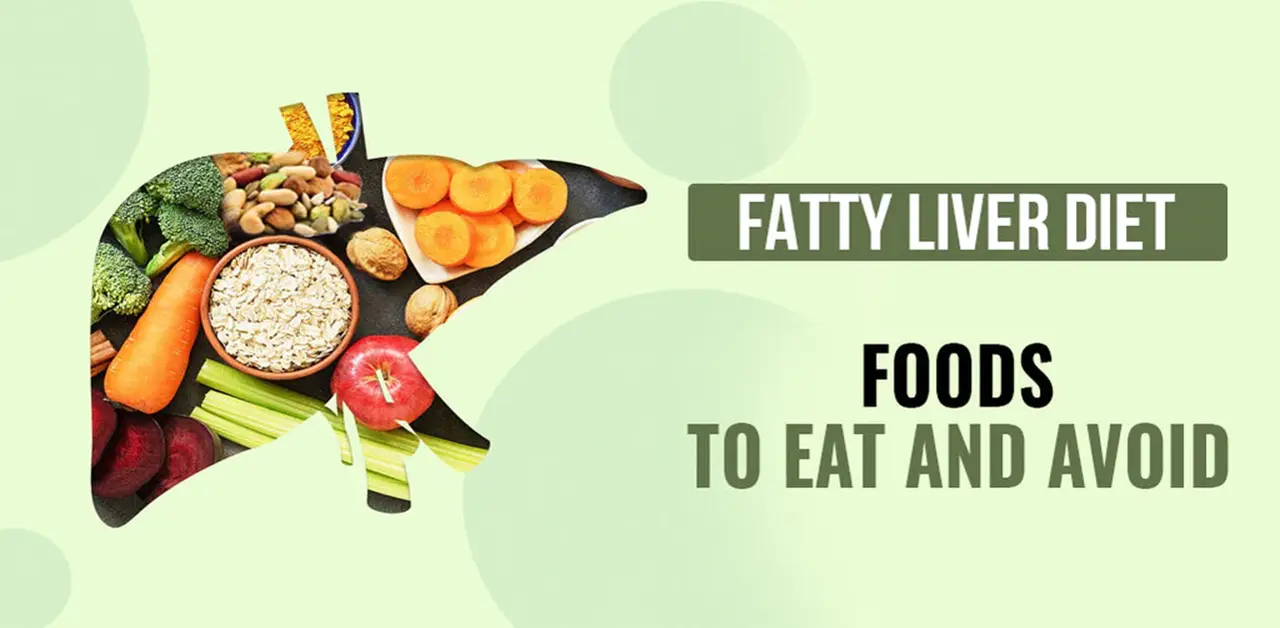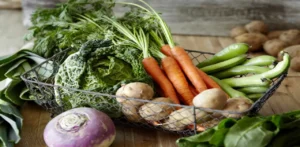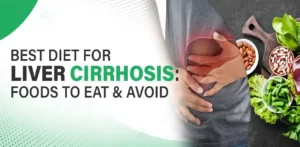Contents
Fatty liver disease, a condition characterized by excessive fat buildup in liver cells, has become increasingly common due to unhealthy lifestyle choices and poor dietary habits. Addressing this condition through a well-structured diet is crucial for managing and potentially reversing the disease. This article will explore the best foods for fatty liver, providing you with comprehensive fatty liver nutrition tips to help you manage and improve your liver health.
Understanding Fatty Liver Disease
Fatty liver disease is generally categorized into two types: alcoholic fatty liver disease (AFLD) and non-alcoholic fatty liver disease (NAFLD). NAFLD is the more prevalent form and is often associated with obesity, type 2 diabetes, and other metabolic syndromes. Regardless of the type, maintaining a healthy diet is essential for managing this condition.
The Importance of a Fatty Liver Diet
A fatty liver diet focuses on reducing the amount of fat in the liver and improving overall liver function. Incorporating fatty liver-friendly meals into your daily routine can help in managing the disease effectively. Here, we will delve into specific foods that are beneficial for liver health and those that should be avoided.
Also Read: “Effective Diet Strategies for Managing Liver Cirrhosis“
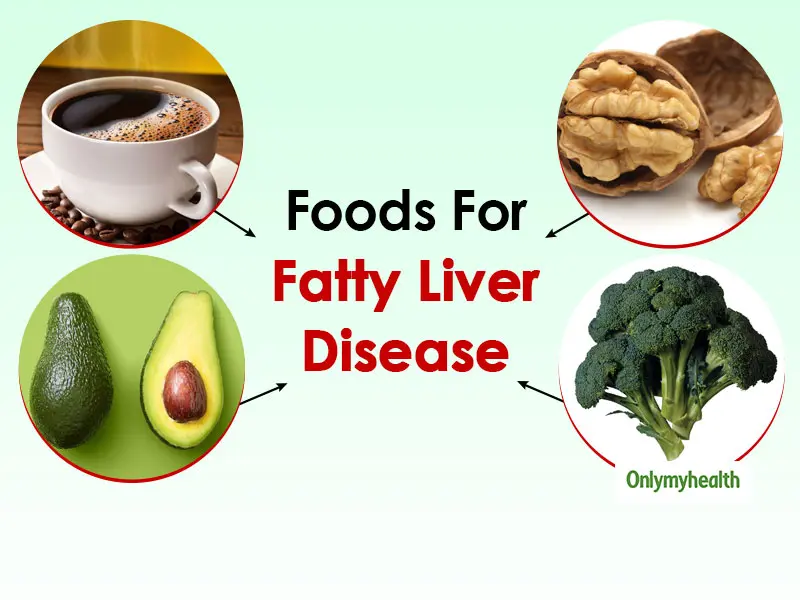
Best Foods for Fatty Liver
-
Leafy Greens
- Examples: Spinach, kale, and collard greens.
- Benefits: These vegetables are rich in fiber, antioxidants, and vitamins that help reduce liver fat. Their high chlorophyll content also aids in detoxifying the liver.
-
Fatty Fish
- Examples: Salmon, sardines, and mackerel.
- Benefits: Fatty fish are high in omega-3 fatty acids, which reduce inflammation and fat levels in the liver. Including fatty fish in your diet can help improve liver health nutrition.
-
Nuts and Seeds
- Examples: Walnuts, almonds, chia seeds, and flaxseeds.
- Benefits: These are excellent sources of healthy fats, antioxidants, and fiber. Nuts and seeds are particularly beneficial for reducing liver fat and improving heart health.
-
Olive Oil
- Benefits: A staple in the Mediterranean diet, olive oil is rich in monounsaturated fats and antioxidants. It helps in reducing liver fat and inflammation, making it an essential part of a diet for fatty liver management.
-
Avocado
- Benefits: Avocados are packed with healthy fats, fiber, and essential nutrients. They help reduce liver damage and improve overall liver function.
-
Green Tea
- Benefits: Green tea is loaded with antioxidants, particularly catechins, which help improve liver function and reduce liver fat. Regular consumption of green tea can be a part of effective fatty liver nutrition therapy.
-
Garlic
- Benefits: Garlic has anti-inflammatory properties and helps reduce body fat, making it beneficial for those with fatty liver.
-
Whole Grains
- Examples: Brown rice, quinoa, and oats.
- Benefits: Whole grains are high in fiber and help control blood sugar levels, which is crucial for managing fatty liver.
Also Read: “Comprehensive Guide to Liver Cancer Diet and Nutrition”
Foods to Avoid for Fatty Liver
-
Sugary Foods and Beverages
- Examples: Sodas, candies, and baked goods.
- Why Avoid: High sugar intake leads to increased fat accumulation in the liver.
-
Refined Carbohydrates
- Examples: White bread, pasta, and rice.
- Why Avoid: These foods have a high glycemic index, causing spikes in blood sugar and increased fat storage in the liver.
-
Alcohol
- Why Avoid: Alcohol is a primary cause of fatty liver disease and can significantly worsen liver health.
-
Trans Fats
- Examples: Fast food, fried foods, and packaged snacks.
- Why Avoid: Trans fats contribute to inflammation and fat accumulation in the liver.
-
Excessive Salt
- Examples: Processed meats and canned soups.
- Why Avoid: High sodium intake can lead to water retention and liver damage.
Fatty Liver Nutrition Tips
- Maintain a Balanced Diet: Ensure your diet includes a variety of nutrients to support overall health and liver function.
- Monitor Portion Sizes: Eating in moderation can help manage weight and reduce liver fat.
- Stay Hydrated: Drinking plenty of water aids in digestion and detoxification processes.
- Limit Processed Foods: Opt for whole, unprocessed foods to avoid additives and unhealthy fats.
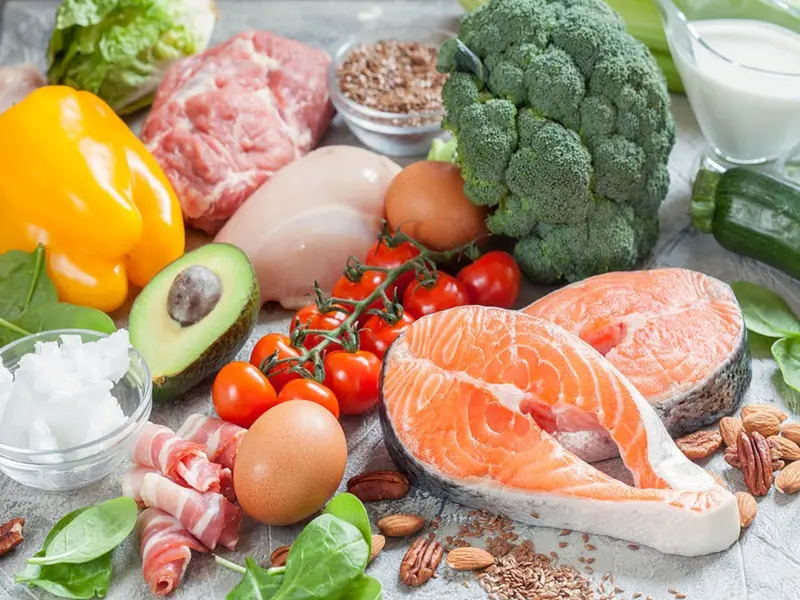
Fatty Liver-Friendly Recipes
-
Quinoa Salad with Avocado and Spinach
- Ingredients: Quinoa, avocado, spinach, cherry tomatoes, olive oil, lemon juice, garlic, salt, and pepper.
- Benefits: This salad is rich in fiber, healthy fats, and antioxidants, making it ideal for liver health.
-
Baked Salmon with Asparagus
- Ingredients: Salmon fillets, asparagus, olive oil, garlic, lemon zest, salt, and pepper.
- Benefits: This dish provides omega-3 fatty acids and essential nutrients that help reduce liver fat and inflammation.
-
Green Smoothie
- Ingredients: Spinach, kale, green tea, avocado, chia seeds, and a banana.
- Benefits: A powerhouse of antioxidants, fiber, and healthy fats, this smoothie supports liver detoxification and function.
Conclusion
Managing fatty liver disease through diet is not only possible but also highly effective. By incorporating the best foods for liver health and following practical fatty liver nutrition tips, you can improve your liver function and overall well-being. Remember to avoid foods that exacerbate liver fat and inflammation.
For those seeking personalized meal plans and easy access to healthy, fatty liver-friendly foods the IntRest platform offers an excellent solution. IntRest categorizes restaurant menus according to illnesses, diets, and allergies, making it convenient to order nutritious meals tailored to your specific needs. Take charge of your liver health today with IntRest’s comprehensive food options and start your journey to a healthier liver!
